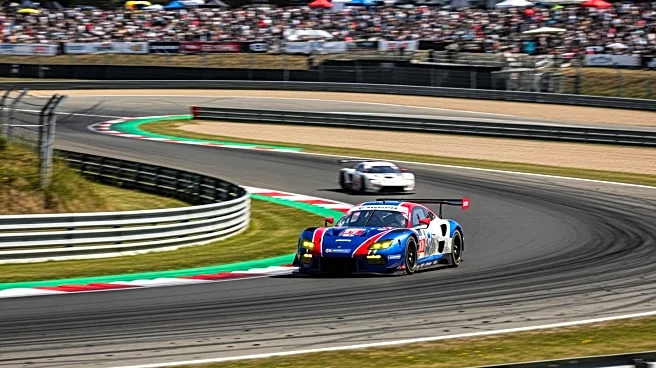What's Happening?
Max Verstappen, the Red Bull F1 driver, secured a victory in his first GT3 endurance race at the Nordschleife, driving a Ferrari 296 GT3 with Chris Lulham. The race was part of the Nurburgring Endurance Series, and Verstappen's performance was dominant, taking the lead early and maintaining it throughout. This win adds to Verstappen's recent successes, including victories in the Italian and Azerbaijan Grands Prix. His interest in endurance racing is part of a broader trend among F1 drivers exploring other motorsport categories, with Verstappen expressing a desire to compete in the Le Mans 24 Hours in the future.
Why It's Important?
Verstappen's foray into endurance racing underscores a shift in the motorsport landscape, where F1 drivers are increasingly participating in diverse racing events. This trend could lead to greater integration between different racing disciplines, enhancing the appeal and reach of motorsport globally. For Red Bull, supporting Verstappen's ambitions could strengthen their partnership and attract a wider fan base. Verstappen's success may also inspire other drivers to pursue similar paths, potentially leading to a more dynamic and versatile racing community. This development could have long-term implications for how drivers manage their careers and engage with various motorsport opportunities.
What's Next?
Looking ahead, Verstappen may participate in the Nurburgring 24 Hours next year, contingent on his schedule and Red Bull's performance under new regulations. His involvement in endurance racing could influence Red Bull's strategic decisions, particularly if the team faces challenges in F1. Verstappen's future plans will be closely watched by fans and industry stakeholders, as they could signal broader changes in the motorsport ecosystem. The upcoming Singapore Grand Prix will be another opportunity for Verstappen to demonstrate his skills and potentially close the gap in the F1 championship standings.









